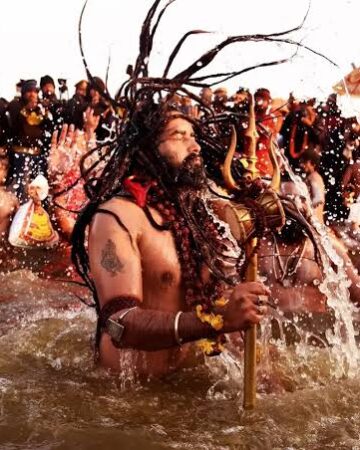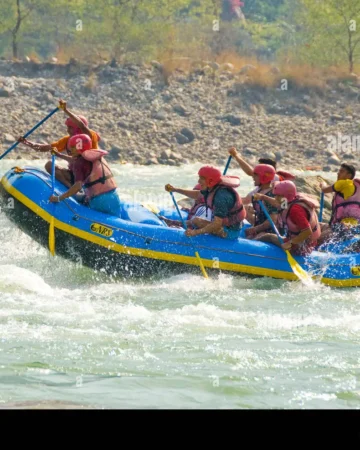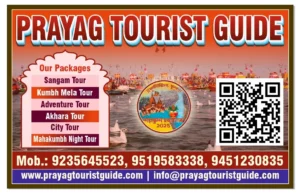The Arail Tour in Prayagraj is a special way to experience the Kumbh Mela. The tour starts with a peaceful boat ride at the Triveni Sangam, where the Ganga, Yamuna, and the mythical Saraswati rivers meet. People believe that bathing here during the Kumbh Mela helps to wash away sins and bring spiritual peace. While on the boat, you can see the Shahi Snan processions and the rituals being performed along the river. Some tours also take you to important places like Harihar Aarti Sthal and the Akharas, where saints gather.
After the boat ride, the tour takes you to Shivalay Park, a calm place near the Sangam. The park has beautiful Shiva sculptures and is perfect for meditation or simply relaxing. During the Kumbh Mela, the park hosts spiritual talks and events by spiritual gurus, making it a peaceful part of your journey.
Finally, you’ll visit the Akhleswar Mahadev Temple, dedicated to Lord Shiva. This sacred temple, with its detailed carvings, offers a quiet place for prayer and reflection. During the Kumbh Mela, many pilgrims visit this temple to seek blessings and enjoy its divine atmosphere.
The Arail Tour combines spirituality, culture, and history, giving you a meaningful experience during the Kumbh Mela in Prayagraj.
Travel is the movement of people between relatively distant geographical locations, and can involve travel by foot, bicycle, automobile, train, boat, bus, airplane, or other means, with or without luggage, and can be one way or round trip. Travel can also include relatively short stays between successive movements.
The origin of the word "travel" is most likely lost to history. The term "travel" may originate from the Old French word travail, which means ‘work’. According to the Merriam Webster dictionary, the first known use of the word travel was in the 14th century.
It also states that the word comes from Middle English travailen, travelen (which means to torment, labor, strive, journey) and earlier from Old French travailler (which means to work strenuously, toil). In English we still occasionally use the words "travail", which means struggle. According to Simon Winchester in his book The Best Travelers’ Tales (2004), the words "travel" and "travail" both share an even more ancient root: a Roman instrument of torture called the tripalium (in Latin it means "three stakes", as in to impale).






